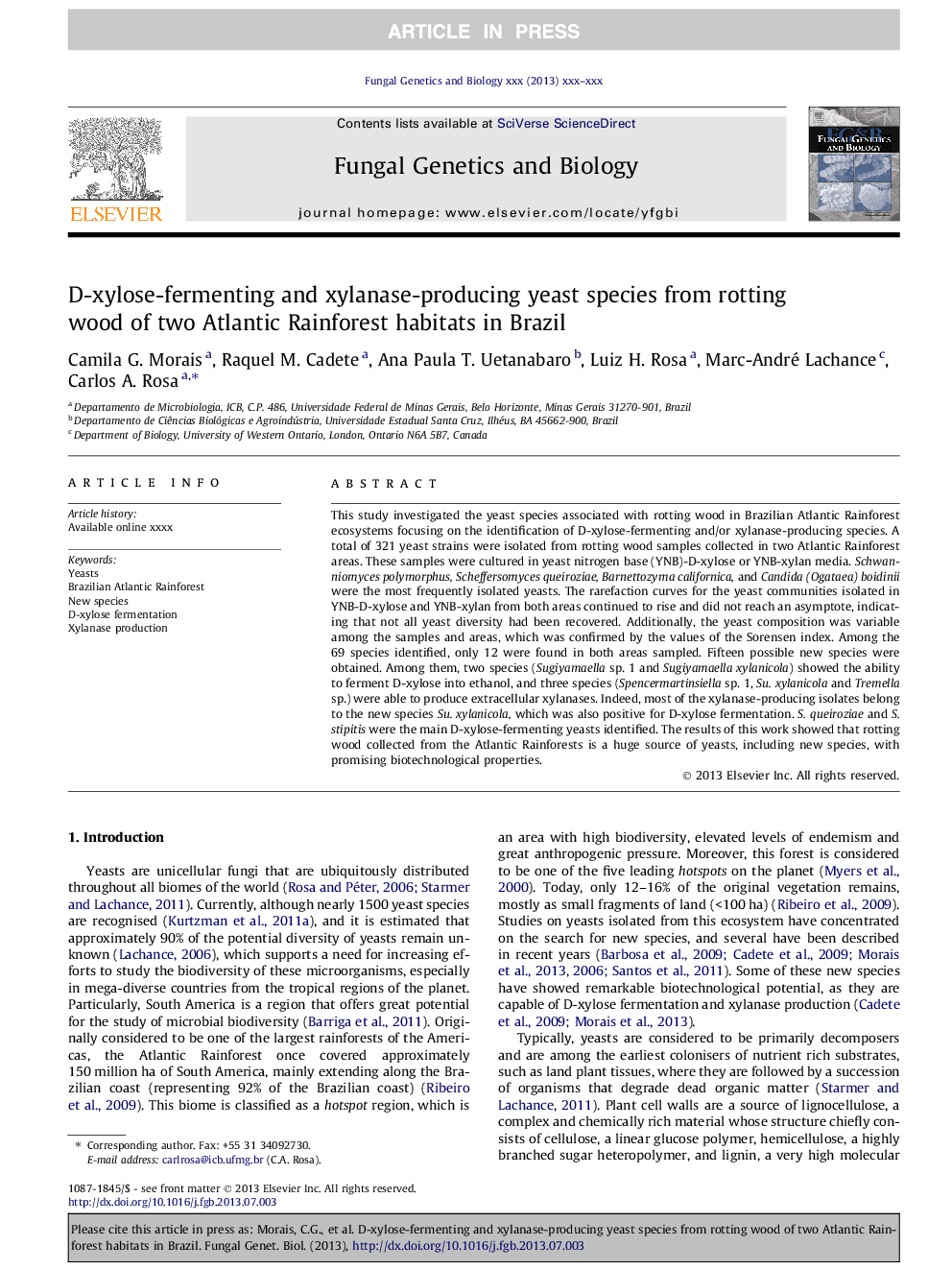| Article ID | Journal | Published Year | Pages | File Type |
|---|---|---|---|---|
| 8470954 | Fungal Genetics and Biology | 2013 | 10 Pages |
Abstract
This study investigated the yeast species associated with rotting wood in Brazilian Atlantic Rainforest ecosystems focusing on the identification of D-xylose-fermenting and/or xylanase-producing species. A total of 321 yeast strains were isolated from rotting wood samples collected in two Atlantic Rainforest areas. These samples were cultured in yeast nitrogen base (YNB)-D-xylose or YNB-xylan media. Schwanniomyces polymorphus, Scheffersomyces queiroziae, Barnettozyma californica, and Candida (Ogataea) boidinii were the most frequently isolated yeasts. The rarefaction curves for the yeast communities isolated in YNB-D-xylose and YNB-xylan from both areas continued to rise and did not reach an asymptote, indicating that not all yeast diversity had been recovered. Additionally, the yeast composition was variable among the samples and areas, which was confirmed by the values of the Sorensen index. Among the 69 species identified, only 12 were found in both areas sampled. Fifteen possible new species were obtained. Among them, two species (Sugiyamaella sp. 1 and Sugiyamaella xylanicola) showed the ability to ferment D-xylose into ethanol, and three species (Spencermartinsiella sp. 1, Su. xylanicola and Tremella sp.) were able to produce extracellular xylanases. Indeed, most of the xylanase-producing isolates belong to the new species Su. xylanicola, which was also positive for D-xylose fermentation. S.queiroziae and S. stipitis were the main D-xylose-fermenting yeasts identified. The results of this work showed that rotting wood collected from the Atlantic Rainforests is a huge source of yeasts, including new species, with promising biotechnological properties.
Keywords
Related Topics
Life Sciences
Biochemistry, Genetics and Molecular Biology
Cell Biology
Authors
Camila G. Morais, Raquel M. Cadete, Ana Paula T. Uetanabaro, Luiz H. Rosa, Marc-André Lachance, Carlos A. Rosa,
